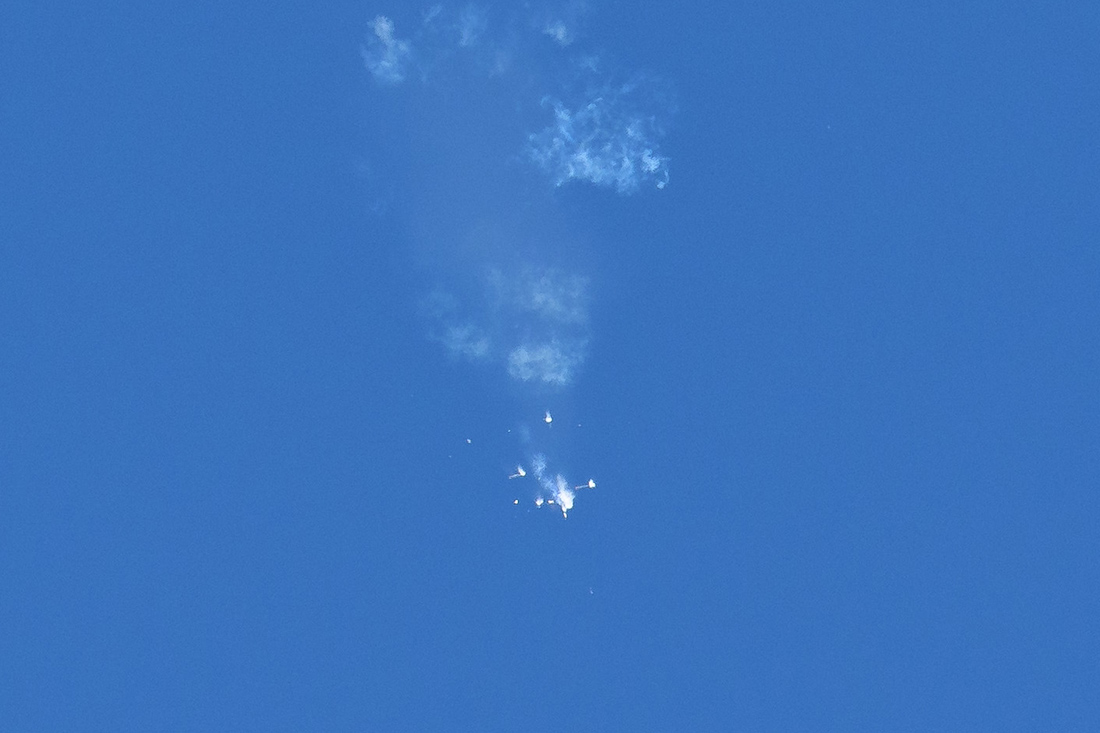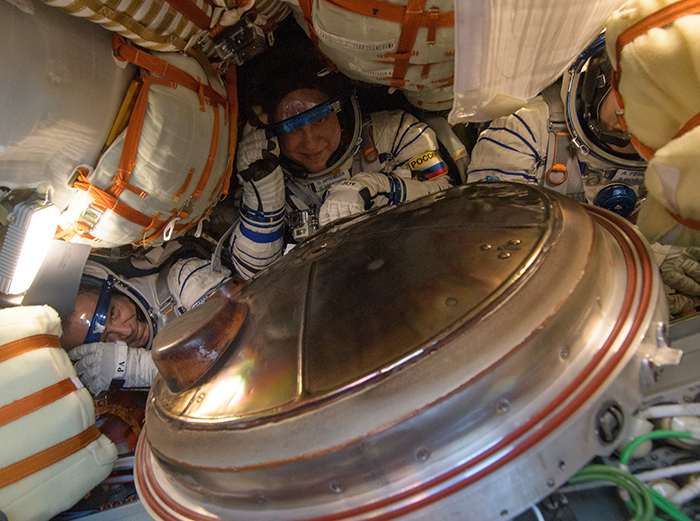It seems we began to forget what space exploration looks like.

The endless series of problems of the domestic space industry and attempts to find a way out of the crisis divert our attention from the main goal, for which everything was started - space exploration. The change of leadership of space agencies and enterprises, endless discussions about flights to asteroids, the Moon or Mars, reflections on the fate of the ISS, corruption scandals, disputes about reusability and the prospects of private astronautics is, of course, important. But one should not lose sight of the forest behind the trees, and one should always remember why we climbed into this windbreak.
Immediately make a reservation, saying in the title "we", I first of all mean myself, but I think I am not alone.
I was encouraged to watch the film “The Martian” by these thoughts, although there should have been dramatic events of Thursday in the sky of Baikonur, where real people were put at risk for life, not fictional ones. But in the cinema it was possible to better convey the mood of the conquest of space than the news agencies or Twitter tapes.
If you look at “Martian” or “Gravity” or just the latest news about the work of cosmonauts in orbit, a logical question arises: why is this all? Why constant perpetuation, constant risk and struggle with the soulless, silent and indifferent cosmos that methodically kills you? Why do people climb into aluminum cans and aspire to some kind of vacuum, the Moon or Mars, where nobody waits for them except death, lurking around every corner? Isn't it easier to stay on a warm solid Earth, breathe deeply and admire the starry sky in comfort and safety?

But on the other hand, is our earthly life so comfortable? Here, in the same way, one careless movement or phrase can destroy the result of many years of work. Similarly, health and life depend on reaction, attention, and adherence to instructions. Similarly, we have to cope with the constant shortage of resources, energy shortages and the mismatch of goals and capabilities. Astronautics is a concentrated life that aggravates all those problems that accompany each of us. And as any person “tries this world for durability every moment” in studies, career or personal relationships, so mankind tries to test space for durability - step by step moving further, expanding its presence and its capabilities.
Astronautics is not throwing money into space, but an additional effort in expanding the comfort zone in which people can live and develop. Even if now there is not very comfortable, now we know what awaits us and what we should be ready for. In the same way, people once walked under dark vaults of caves, repelled from the coast on rafts of straw, raised structures made of plywood and canvas into the air. And risked.
Astronautics is a constant movement along the edge, constant voltage, high probability of error and its high price. Once on the edge, we must understand and remember why we made this exit. Exit to the edge is needed with one goal - to find out what is behind it, and push the edge a little further.

When I started talking about the journey of the rover Curiosityit was this opportunity to look beyond the edge that attracted me. Each step on Mars is the discovery of a new one, the opportunity to see what no one has seen before you. It turned out that there were only stones, dust and sand, and the feeling of delight began to wash up. The same thing happens in the entire space program: first, every step - the flight into space, the exit from the ship, the trail on the moon - caused delight, and then the flights to the ISS turned into a routine.
However, nothing has changed: flying into space is a movement on the edge to look beyond the edge. This movement is necessary for every person on Earth so that everyone has more opportunities, more choice and more room for maneuver in their own walking on their own edge. Let's not forget about it.
The Soviet Union, and then Russia, made considerable efforts to move mankind into space. And today, when the fate and purpose of our cosmonautics is being discussed, we need to understand that rockets fly into space not in order to load the work of hard workers in Korolyov, Voronezh, Perm and Samara, not to defeat everyone in the length and number of their rockets, but for to be at the forefront of the world, expanding the inhabited limits of the universe. This lofty goal was proclaimed by our compatriot Tsiolkovsky, realized by our compatriot Korolyov, and our generation was entrusted with a high responsibility to continue their aspiration and to develop the successes achieved.
Roscosmos - is the vanguard of humanity. Our contribution to the expansion of the habitat of the human species, and thus increase the comfort and safety of the whole world. It is not easy to realize this fact, when in popular news only explosions of rockets, holes in the skin, and emptiness under the launching table. What kind of avant-garde is there, although tens of thousands of people work somewhere behind the scenes to make it possible to step beyond the limits that our ancestors could only look beyond.
Astronautics is an expensive business, so the government always has a choice: to continue investing in maintaining a place in the front ranks of the country, or moving into the audience rows, directing resources to some more urgent tasks. Yes, and Roskosmos itself should not forget why it is here: why every official or employee of the rocket and space enterprise gets up to work in the morning.
Why are cosmonauts at risk, why RadioAstron is looking at the nuclei of active galaxies for millions of light years, why does ExoMars catch rare neutrons emitted from the surface of the Red Planet? Beyond the edge. We go where no one else has been and see what is there. Looking for opportunities for the next step.

Private astronautics has other tasks, but everyone has a common goal. The state expands opportunities, creates technologies and infrastructure, funds basic research, and private owners are needed to make these opportunities available to all, and to improve the lives of those living on Earth. It does not always work, but advances in navigation, cartography, satellite communications clearly show that this is quite real. Manned space flight is still lagging behind, and does not bring the common good, but it is an incentive for further development.
I will try to make my work of cosmonautics popularization in a blog, books , lectures , future video channel , always aimed at popularizing these thoughts, and only in this I will feel the meaning of my work.
